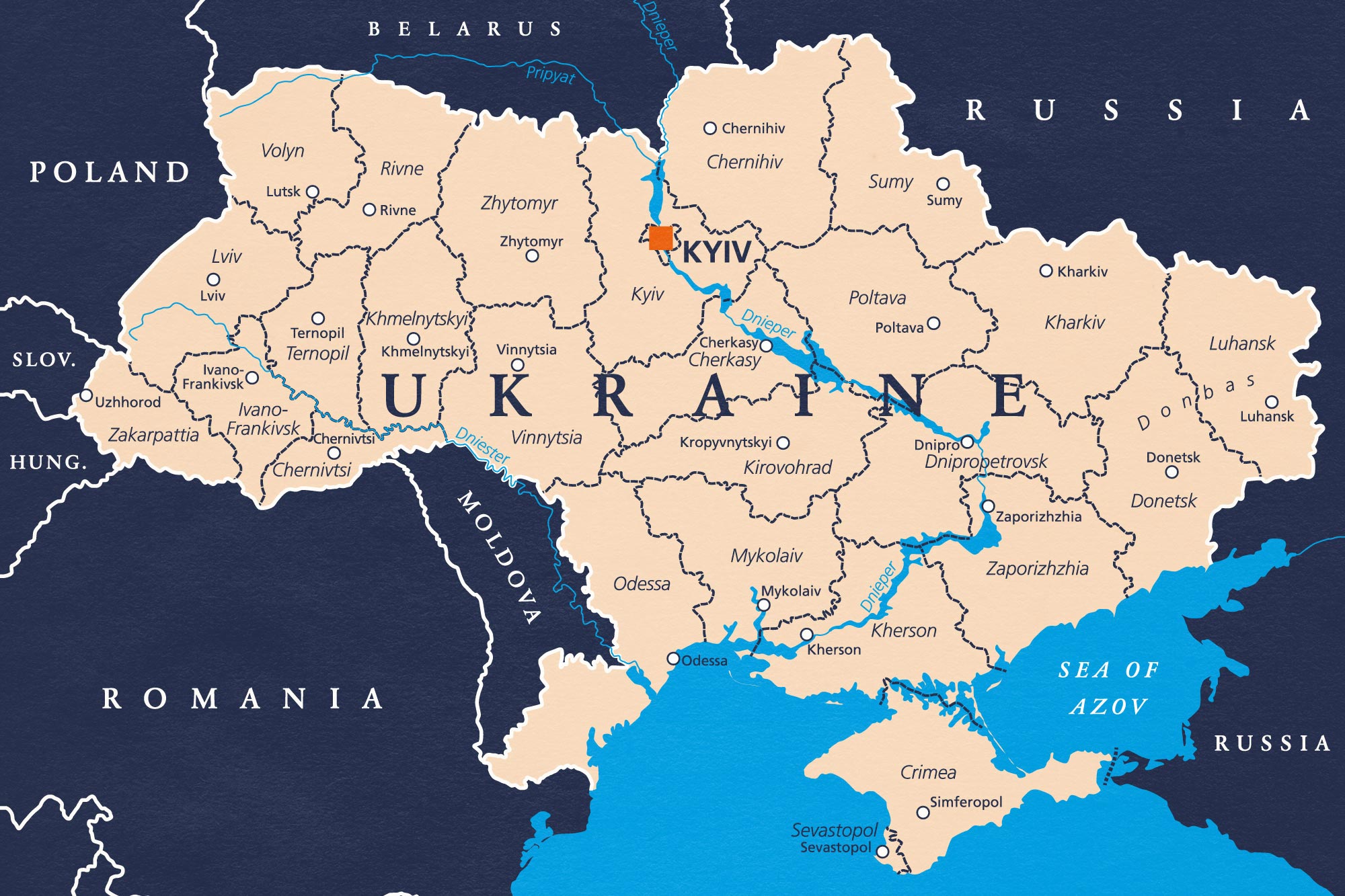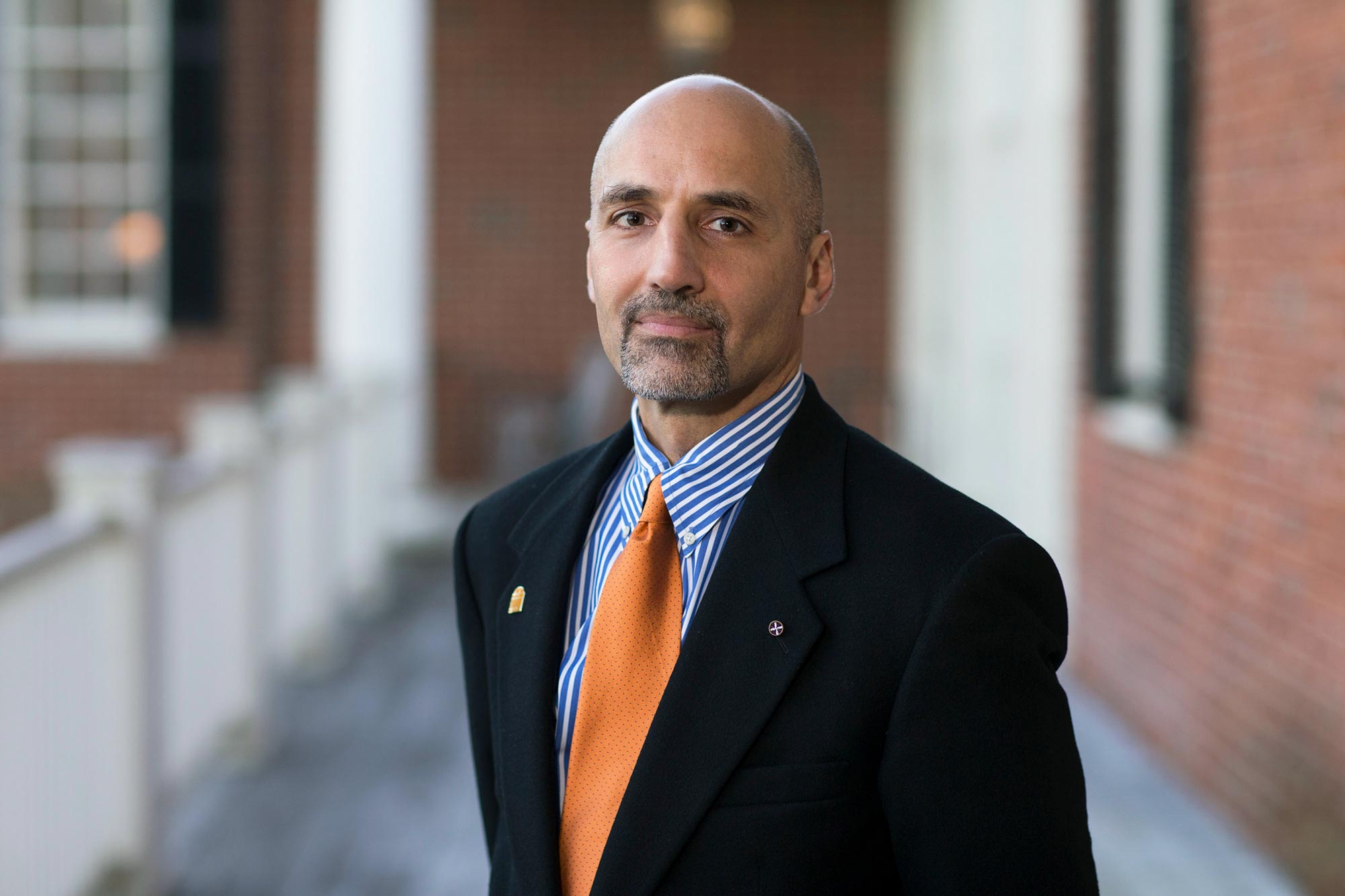Antholis has also served as the managing director at the Brookings Institution, worked with the National Security Council, attended G8 summits and worked with Russia and Ukraine on energy issues.
Q. Is Ukraine likely to get the weapons and the money it seeks from the U.S.?
A. This is the $60 billion question in Washington right now. And it’s tied up in negotiation over whether Republicans will also get something for this.
There continues to be super-majority support, both in the Senate and in the House, for Ukraine –that is, more than a two-thirds majority in both bodies of Congress. The problem is that in the House of Representatives, it is not a majority of the majority. They would need to have over 110 votes on the Republican side in the House in order to force House Speaker Mike Johnson to bring this up as a vote.
The moderates who support Ukraine are all pressing him to do this, but he needs something in return: votes for border security.
In the Senate, Minority Leader Mitch McConnell really wants to do this and he sees this as part of his legacy. I would like to think, eventually, there’s going to be an agreement that supports Ukraine. But the devil is in the details about what President Biden is willing to support on border security.
Q. Is the conflict in the Middle East undermining support for Ukraine?
A. It’s not technically undermining support for Ukraine. The majorities that support Israel are larger on the Republican side than on the Democratic side, both as a real matter and in comparison to GOP support for Ukraine. But similar majorities in support of Israel exist in both houses of Congress.
The war with Hamas in Gaza is diverting all of the headlines from Ukraine. And it’s making it harder to sustain public focus on the importance of Ukraine.
Q. At what point does the U.S. public grow weary of what they see as “other people’s wars”?
A. That is certainly one of the big questions driving our Ukraine War Room discussions, and will drive domestic politics in the coming year, particularly as we enter an election year.
There is a diversity of opinion in our War Room discussion about whether the war aims are clearly enough understood by the American people to sustain that support. That includes whether Ukraine’s goal of reclaiming all its territory is an achievable one. I think the simple case that people will make with respect to Ukraine is, unlike some of the wars that we have fought in Afghanistan, in Iraq and even going back to Vietnam, this is one where there are no American boots on the ground. This is Ukraine fighting for its own independence. And in this case, Ukrainians are dying in a war that is undermining one of our most dangerous and aggressive international adversaries.
Q. What is the war news coming out of Ukraine?
A. Putin’s basic war aims have not been achieved. He did not end up creating a pro-Russian government in Ukraine or folding it back into Russia. The government in Ukraine not only did not fall, it has built a public consciousness in Ukraine that remains solidly pro-independence.






